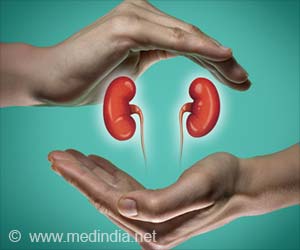Dementia is marked by the accumulation of β-amyloid in the brain, which is induced by a high-fat diet. But a low-fat diet can reverse cognitive decline, finds a study.
Highlights
- Diet high in fat causes obesity, glucose intolerance and cognitive deficits.
- High-fat diet induced cognitive decline can be reversed with a low-fat diet, finds a new study.
- A low-fat diet can also reverse the inflammatory response, suggests the study.
A research team led by Fiona Harrison, Ph.D conducted a study on a mouse model of Alzheimer’s disease to test whether the condition is permanent or reversible. The authors fed the mouse model high-fat diet for a period of ten months. The high-fat diet provided 60% of calories from fat.
When the diet was changed to a low-fat diet, the mice rapidly lost weight, leading to correction of glucose intolerance, decreased inflammation and improved performance on behavioral tasks. The research team also found that the low-fat diet had reduced the accumulation of β-amyloid, and extent of tau phosphorylation. The findings published in the journal Neurobiology of Disease indicate that inflammatory response induced by high-fat diet may contribute to key pathogenic pathways in the Alzheimer’s disease model. The study suggests that cognitive decline observed in Alzheimer’s disease may be due to co-morbid illnesses and not the disease itself. The study also suggests that weight loss can be a vital strategy for cognitive protection. Dietary and lifestyle changes are effective in reversing some of the cognitive decline observed in Alzheimer’s disease.
Alzheimer’s Disease
Alzheimer’s Disease is the most common form of dementia, which causes problems with memory, tinking and behavior. Alzheimer’s disease accounts for 60 to 80 percent of dementia cases. Increasing age is the greatest known risk factor for Alzheimer’s. Although Alzheimer’s is seen in the elderly, 5 percent of the cases occur at the age of 40s or 50s.
The most common symptom of Alzheimer’s is difficulty remembering newly learned information. As Alzheimer’s advances, it causes severe symptoms such as disorientation, mood and behavior changes; deepening confusion about events, time and place; difficulty speaking, swallowing and walking.
Facts
- Approximately 46.8 million people are living with dementia worldwide
- Alzheimer’s cases may reach 74.7 million in 2030 and 131.5 million in 2050
- About 58% of people with dementia live in low-and-middle-income-countries
- 9.9 million new cases of dementia are reported each year worldwide
- Approximately three-quarters of people with dementia have not received a diagnosis
- One in nine Americans over 65 has Alzheimer’s disease
- Two in three people with Alzheimer’s are women
- Dementia statistics - (https://www.alz.co.uk/research/statistics)
- 2016 Alzheimer’s Statistics - (http://www.alzheimers.net/resources/alzheimers-statistics/ )
















